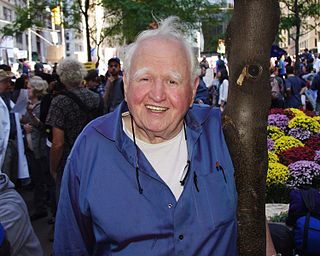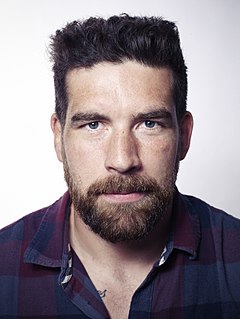A Quote by Josh McDowell
I once had a lot of hatred, mainly toward my father, an alcoholic.
Related Quotes
'Master Harold' is about me as a little boy, and my father, who was an alcoholic. There's a thread running down the Fugard line of alcoholism. Thankfully I haven't passed it on to my child, a wonderful daughter who's stone-cold sober. But I had the tendency from my father, just as he had had it from his father.
My father was raised by a violent alcoholic. There was alcoholism in my mother's family. I'm half-adopted, and my birth father was a drug addict and alcoholic. So, I think they very consciously made decisions and parented me in a way that was aimed to help save me from that. So, I knew it would be particularly painful and it was, especially for my father.
It's maybe hard to believe, but as a kid I really had a lot of self-doubts. My father was very ill - he was an alcoholic - so there were a lot of things that built up for me. And because I was going to a Catholic school in a small German town, a lot of it was suppressed. I was angry and didn't know how to get it out.
To me, acting is very therapeutic. I get out a lot of anger and frustration. It's maybe hard to believe, but as a kid I really had a lot of self-doubts. My father was very ill - he was an alcoholic - so there were a lot of things that built up for me. And because I was going to a Catholic school in a small German town, a lot of it was suppressed. I was angry and didn't know how to get it out.
I was born in Edinburgh, in Scotland, a few days after the end of the Second World War. Both my parents had left school at a very young age, unwillingly in my father's case. Yet both had deep effects on my education, my father influencing me toward measurement and mathematics, and my mother toward writing and history.
Those who attempt to conquer hatred by hatred are like warriors who take weapons to overcome others who bear arms. This does not end hatred, but gives it room to grow. But, ancient wisdom has advocated a different timeless strategy to overcome hatred. This eternal wisdom is to meet hatred with non-hatred. The method of trying to conquer hatred through hatred never succeeds in overcoming hatred. But, the method of overcoming hatred through non-hatred is eternally effective. That is why that method is described as eternal wisdom.
Well, the reality of her father was that he was a very diseased alcoholic, who died at the age of 34. And one always has to pause to wonder how much you have to drink to die at 34. And he was a really tragic father. I mean, he was absolutely unreliable. He was absolutely involved with various people. He had outside families, outside children, outside wives. He made his wife's life miserable. And she [Eleanor Roosevelt]ignored all of his faults and retained this sense of him as the perfect father.





































